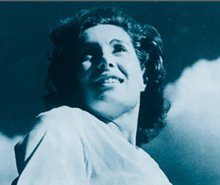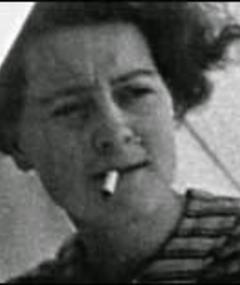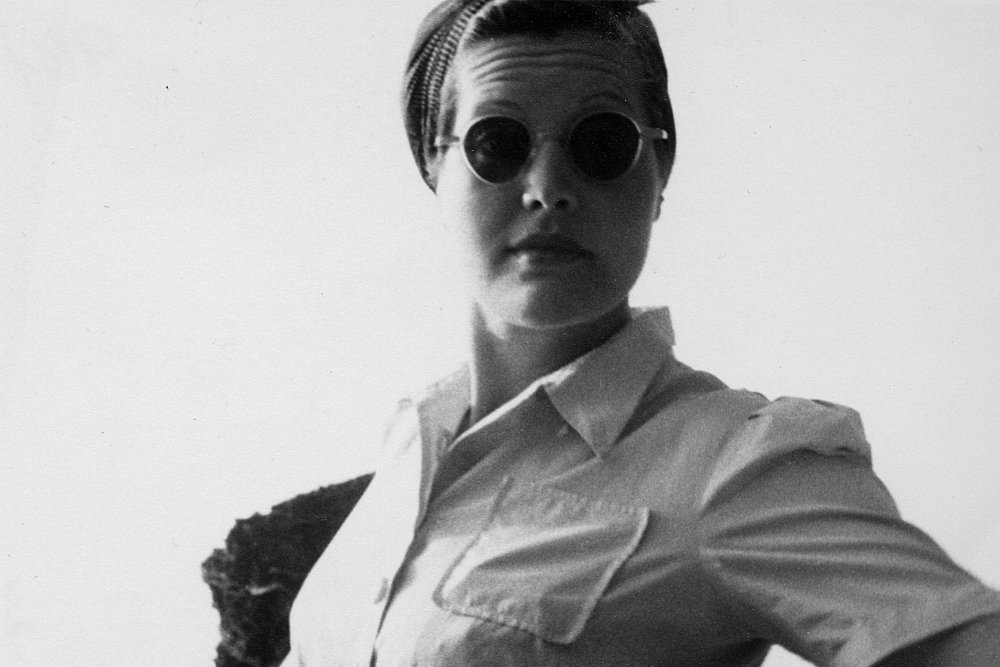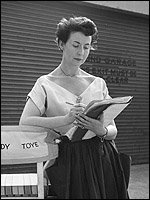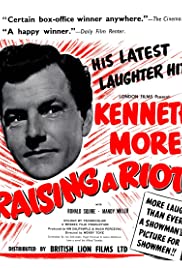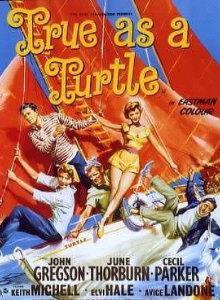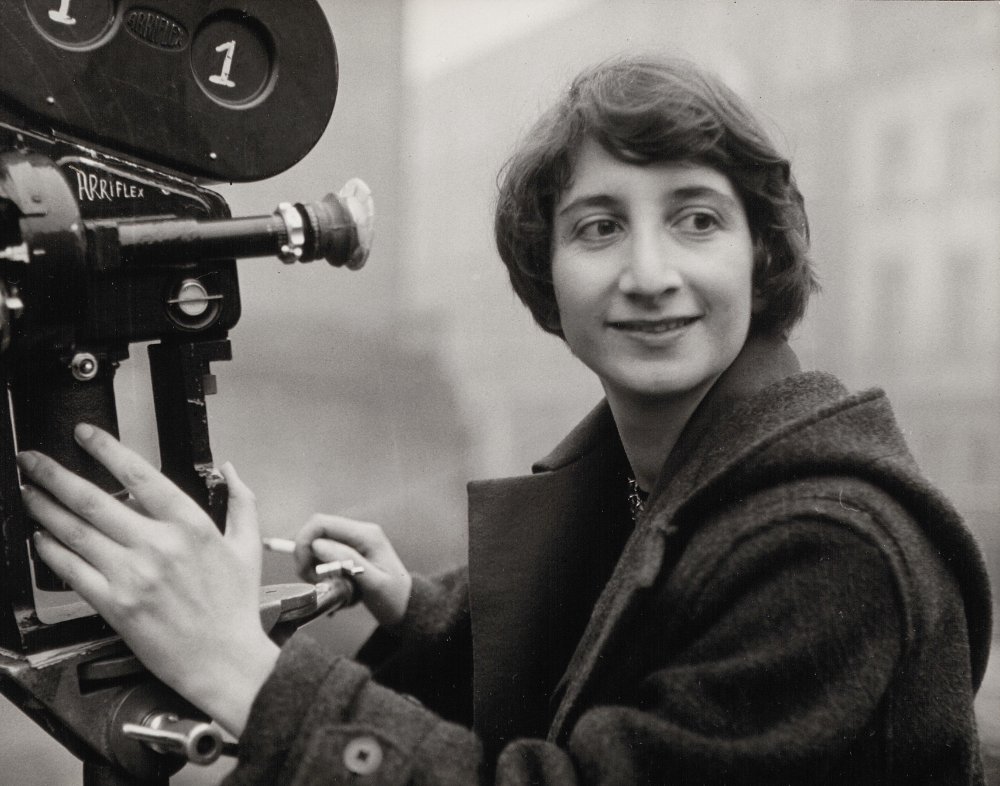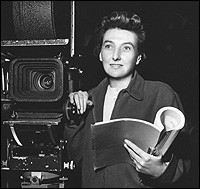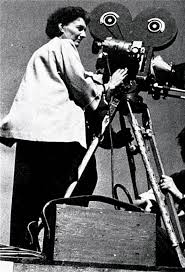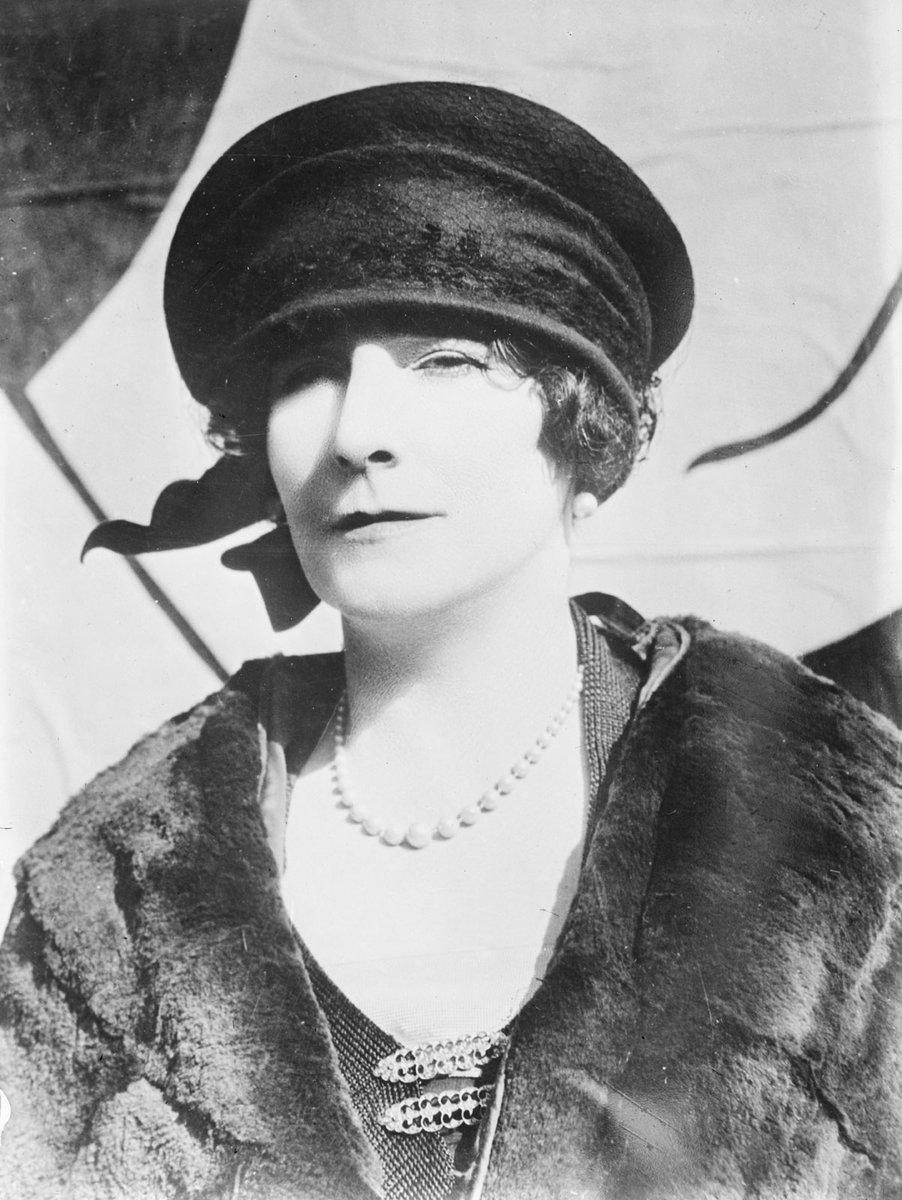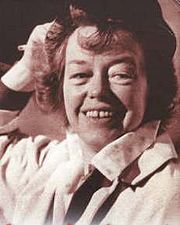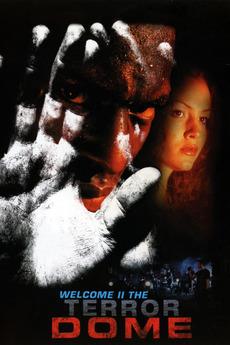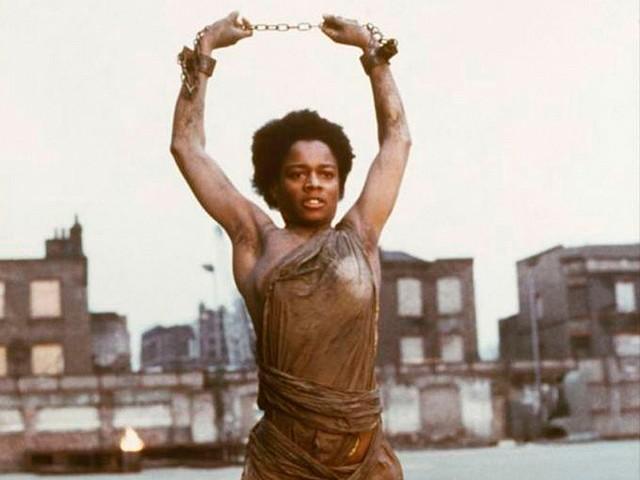For Valentine's Day weekend I will be tweeting out links to pre-60's British films directed by women. It was a tougher road for females to crack the director's chair in those days of the British studio system. There are some examples we should celebrate #BritishWomenDirect
BLUE SCAR (1949) directed by Jill Craigie. Mostly a documentarian, this is her only non-documentary feature film
A stirring tale of love, music and coalmining in Abergwynfi, South Wales
#BritishWomenDirect
A stirring tale of love, music and coalmining in Abergwynfi, South Wales
#BritishWomenDirect
A post WW2 doc by Jill Craigie. She met her husband, Michael Foot, on this film
THE WAY WE LIVE (1946)
#BritishWomenDirect
THE WAY WE LIVE (1946)
#BritishWomenDirect
She made one last film, in her 80's, for BBC TV. It can be found on YouTube, but in 5 parts (from my search). I won't link here. TWO HOURS FROM LONDON
An activist, feminist, socialist, actress, writer, director Jill Craigie (1911-1999)
#BritishWomenDirect #FilmTwitter
An activist, feminist, socialist, actress, writer, director Jill Craigie (1911-1999)
#BritishWomenDirect #FilmTwitter
Mary Field (1896-1968)
Documentary filmmaker
Wiki:
The timing of her career meant that she was one of the first British women to be an established, professional film director and producer, and she oversaw the transition to sound in instructional films
#BritishWomenDirect
Documentary filmmaker
Wiki:
The timing of her career meant that she was one of the first British women to be an established, professional film director and producer, and she oversaw the transition to sound in instructional films
#BritishWomenDirect
One of her first instructional/science films was this early 1930 short, PLANTS OF THE UNDERWORLD
#BritishWomenDirect
#BritishWomenDirect
Ruby Grierson (1904-1940)
Sister of John Grierson, founder of the 1930s British Doc Movement. Born in Scotland, she trained as a teacher but became involved in documentaries
Tragically, a liner she was travelling on was torpedoed and Grierson was killed
#BritishWomenDirect
Sister of John Grierson, founder of the 1930s British Doc Movement. Born in Scotland, she trained as a teacher but became involved in documentaries
Tragically, a liner she was travelling on was torpedoed and Grierson was killed
#BritishWomenDirect
CARGO FOR ANDROSSAN (1939)
From BFI:
this fine documentary tells the story of the process, and of oil’s use to power Scotland’s industries. Informative throughout and at times very evocative
#BritishWomenDirect
From BFI:
this fine documentary tells the story of the process, and of oil’s use to power Scotland’s industries. Informative throughout and at times very evocative
#BritishWomenDirect
And during the WW2, many filmmakers got work filming short war docs for the homefront, women included.
Here's Ms. Grierson's CHOOSE CHEESE (1940)
Makes me hungry
#BritishWomenDirect
Here's Ms. Grierson's CHOOSE CHEESE (1940)
Makes me hungry
#BritishWomenDirect
Kay Mander (1915-2013)
From BFI:
Once told by the head of Ealing Studios that a woman director wouldn’t be able to control a male crew, the late Kay Mander blazed a trail as one of the British documentary movement’s fiercest, most passionate voices
#BritishWomenDirect
From BFI:
Once told by the head of Ealing Studios that a woman director wouldn’t be able to control a male crew, the late Kay Mander blazed a trail as one of the British documentary movement’s fiercest, most passionate voices
#BritishWomenDirect
A dramatised account of a travelling doctor in the Highlands
Ms. Mander apparently has a cameo as a cycling nurse
HIGHLAND DOCTOR: A FILM OF THE HIGHLANDS & ISLANDS MEDICAL SERVICE (1943)
#BritishWomenDirect
Ms. Mander apparently has a cameo as a cycling nurse
HIGHLAND DOCTOR: A FILM OF THE HIGHLANDS & ISLANDS MEDICAL SERVICE (1943)
#BritishWomenDirect
This film won a BAFTA award. Interesting use of documentary and dramatization. In French, no subtitles
LA FAMILLE MARTIN (1948)
#BritishWomenDirect
LA FAMILLE MARTIN (1948)
#BritishWomenDirect
This is an excerpt from a doc about Mander's life, ONE CONTINUOUS TAKE (2001)
After directing her last film in the 50s, she spent the rest of her life as script supervisor on 40 plus films (FROM RUSSIA WITH LOVE, TOMMY etc)
#BritishWomenDirect
After directing her last film in the 50s, she spent the rest of her life as script supervisor on 40 plus films (FROM RUSSIA WITH LOVE, TOMMY etc)
#BritishWomenDirect
Joy Batchelor (1914-1991)
Animator, director, screenwriter, and producer. Married John Halas and they founded own prodco, whose best known animated film was ANIMAL FARM (1954), making her the first woman director of an animated feature since Lotte Reiniger
#BritishWomenDirect
Animator, director, screenwriter, and producer. Married John Halas and they founded own prodco, whose best known animated film was ANIMAL FARM (1954), making her the first woman director of an animated feature since Lotte Reiniger
#BritishWomenDirect
The Halas & Batchelor studio was commissioned to make some 70 short films during WW2.
DUSTBIN PARADE (1942) was a good example of their style. And all these films were made with shortages of film stock, pencils, and paper
#BritishWomenDirect
DUSTBIN PARADE (1942) was a good example of their style. And all these films were made with shortages of film stock, pencils, and paper
#BritishWomenDirect
A man who represented his nation. That was the intent with the Robinson Charley series. This is the first, ROBINSON CHARLEY (1948)
#BritishWomenDirect
#BritishWomenDirect
Quick fast forward to 1970. Neat how how animation changes with time. I took this off of Vivian Halas's channel (Joy's daughter)
The ordeal of five toes in uncomfortable shoes. This is a solo directing job by Joy Batchelor
THE FIVE
#BritishWomenDirect
The ordeal of five toes in uncomfortable shoes. This is a solo directing job by Joy Batchelor
THE FIVE
#BritishWomenDirect
An important person in British cinema. And the Halas & Batchelor studio influential
For curious, I found ANIMAL FARM online and RUDDIGORE, the first animated operetta (1967), and few more shorts
Last clip is a small retrospective
#BritishWomenDirect
For curious, I found ANIMAL FARM online and RUDDIGORE, the first animated operetta (1967), and few more shorts
Last clip is a small retrospective
#BritishWomenDirect
Wendy Toye (1917-2010) was one of the rare female directors to break into the 1950s British studio system
An accomplished dancer and actor, she made her way from directing and choreographing stage shows to getting involved in film production
#BritishWomenDirect
An accomplished dancer and actor, she made her way from directing and choreographing stage shows to getting involved in film production
#BritishWomenDirect
In 1949, Ms. Toye met British producer George K. Arthur. Toye expressed interest in directing a story he had just purchased, THE STRANGER LEFT NO CARD (1953). She got the green light and made it as a 23-minute film
Excerpt below
#BritishWomenDirect
Excerpt below
#BritishWomenDirect
Precisely timed to a synchronised musical score, it impressed Alexander Korda sufficiently for him to offer Toye a contract.
She directed a couple mysteries, then a very successful comedy RAISING A RIOT (1955). A few more comedies came after
#BritishWomenDirect
She directed a couple mysteries, then a very successful comedy RAISING A RIOT (1955). A few more comedies came after
#BritishWomenDirect
Here's a trailer-type excerpt for Toye's WE JOINED THE NAVY (1962). Gives you a sense of the tone of these comedies
#BritishWomenDirect
#BritishWomenDirect
Toye went into British TV soon after this (there's an episode of something online)
But I found a link to her Oscar-nominated short, ON THE TWELFTH DAY... (1955)
Here you see her talent in staging and wonderful film sense
#BritishWomenDirect
But I found a link to her Oscar-nominated short, ON THE TWELFTH DAY... (1955)
Here you see her talent in staging and wonderful film sense
#BritishWomenDirect
Lorenza Mazzetti, born in Italy, lived with her Aunt after her mother passed. During WW2, an SS unit murdered her Aunt and her children, all with Jewish surnames. Lorenza and her sister were spared
After the war, Lorenza moved to London to be a filmmaker
#BritishWomenDirect
After the war, Lorenza moved to London to be a filmmaker
#BritishWomenDirect
After a few student films, Mazzetti made TOGETHER (1956). It follows two deaf-mute characters in bomb-damaged East End
A Cannes award winner. Found an online clip, but full film is on the BFI player (with a VPN and Brit IP)
#BritishWomenDirect
A Cannes award winner. Found an online clip, but full film is on the BFI player (with a VPN and Brit IP)
#BritishWomenDirect
Mazzetti speaks more about the film below
But after TOGETHER, she moved back to Italy, made more film, and wrote novels. She passed away in 2020 at the age of 92
But a key figure in the 50s British indie film movement with TOGETHER
#BritishWomenDirect https://vimeo.com/70631249
But after TOGETHER, she moved back to Italy, made more film, and wrote novels. She passed away in 2020 at the age of 92
But a key figure in the 50s British indie film movement with TOGETHER
#BritishWomenDirect https://vimeo.com/70631249
Muriel Box (1905-1991) was the most prolific female figure in British cinema of the 40s-60s.
In 1935, she married Sydney Box. Together, they wrote many plays and branched off into film.
In 1945, they won a screenplay Oscar for THE SEVENTH VEIL
#BritishWomenDirect
In 1935, she married Sydney Box. Together, they wrote many plays and branched off into film.
In 1945, they won a screenplay Oscar for THE SEVENTH VEIL
#BritishWomenDirect
Box was given an opportunity to direct. Ended up directing 15 films. Many based on plays, material she was familiar with.
But she also chose scripts that foregrounded the female experience
STREET CORNER (1945) about female police
#BritishWomenDirect
But she also chose scripts that foregrounded the female experience
STREET CORNER (1945) about female police
#BritishWomenDirect
THE BEACHCOMBER (1954) is based on a story by W. Somerset Maugham. In Box's version, the pluck and tenacity of the missionary Martha dominates the film
Available on Tubi
And EYEWITNESS (1957) is an efficient, little thriller
#BritishWomenDirect
Available on Tubi
And EYEWITNESS (1957) is an efficient, little thriller
#BritishWomenDirect
According to BFI, visually Box's films are competent and unfussy, with a preference for medium shots, allowing the audience to concentrate on dialogue and gesture
A clip from SIMON AND LAURA (1955) demonstrates this
#BritishWomenDirect
A clip from SIMON AND LAURA (1955) demonstrates this
#BritishWomenDirect
Box endured her share of prejudice. A firing threat or an investor pulling out b/c she (a woman) was directing
Box eventually retired to write novels and set up a successful publishing house, Femina, which offered a more rewarding outlet for her feminism
#BritishWomenDirect
Box eventually retired to write novels and set up a successful publishing house, Femina, which offered a more rewarding outlet for her feminism
#BritishWomenDirect
The thread is coming to an end
A few early films I couldn't find. According to BFI, Dinah Shurey was probably Britain’s only female feature film director of the 20s. In the 1930s, novelist Elinor Glyn (her picture) is credited in directing two films
#BritishWomenDirect
A few early films I couldn't find. According to BFI, Dinah Shurey was probably Britain’s only female feature film director of the 20s. In the 1930s, novelist Elinor Glyn (her picture) is credited in directing two films
#BritishWomenDirect
Joan Littlewood (1914 - 2002)
An important figure in British theatre
Once banned by the BBC for her Communist Party association, Littlewood later achieved acclaim with her theatrical productions of A Taste of Honey and Oh, What a Lovely War!
#BritishWomenDirect
An important figure in British theatre
Once banned by the BBC for her Communist Party association, Littlewood later achieved acclaim with her theatrical productions of A Taste of Honey and Oh, What a Lovely War!
#BritishWomenDirect
Littlewood directed one feature film. She seemed like a natural fit for the film adaptation of the play SPARROWS CAN'T SING (1962), an East End drama
#BritishWomenDirect https://archive.org/details/Sparrows.Cant.Sing.1963.720pSparrows.Cant.Sing.1963
#BritishWomenDirect https://archive.org/details/Sparrows.Cant.Sing.1963.720pSparrows.Cant.Sing.1963
From BFI:
Other than Littlewood, the 1960s, a decade of early women’s liberation, brought few opportunities for British women behind the camera. The radical feminist experimentalist Jane Arden held the reins in the 1970s. Excerpt:
#BritishWomenDirect
Other than Littlewood, the 1960s, a decade of early women’s liberation, brought few opportunities for British women behind the camera. The radical feminist experimentalist Jane Arden held the reins in the 1970s. Excerpt:
#BritishWomenDirect
More gates opened in the 80s - 90s. Directors Sally Potter, Lynne Ramsay and many more, including Ngozi Onwurah, the first black British feature film female director with WELCOME II THE TERRORDOME in 1995 (Criterion Channel? And online)
#BritishWomenDirect
#BritishWomenDirect
But perhaps the era of the 70s onwards is a thread for another time
I believe these women directors I highlighted, who worked and persevered, had an important part in paving the path for others. And not just for British cinema
#BritishWomenDirect
I believe these women directors I highlighted, who worked and persevered, had an important part in paving the path for others. And not just for British cinema
#BritishWomenDirect
Inspiration for this thread came from the Wright-Tarantino podcast about British films from 40s-60s. Some women writers, but no directors. So who were they? And some on #FilmTwitter were asking same
Anyway, enjoy the thread and the movies!
#BritishWomenDirect
END THREAD
Anyway, enjoy the thread and the movies!
#BritishWomenDirect
END THREAD

 Read on Twitter
Read on Twitter